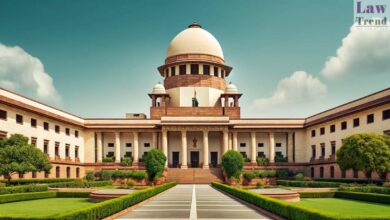
In her separate judgment, Justice BV Nagarathna disagreed with Chief Justice DY Chandrachud on his observations regarding Justice Krishna Iyer’s dictum in Rangareddy.
The Supreme Court held Thursday in a seminal judgment that not every privately owned property constitutes a community resource that the State can requisition for the common good. A nine-judge Constitution bench led by Chief Justice of India DY Chandrachud delivered its judgment on the vexed issue by an 8-1 majority.
Three judgments were written -the Chief Justice for himself and six colleagues, Justice BV Nagarathna a concurrent but separate judgment and Justice Sudhanshu Dhulia dissenting. The Bench comprised Chief Justice DY Chandrachud, Justice Hrishikesh Roy, Justice Nagarathna BV, Justice Sudhanshu Dhulia, Justice JB Pardiwala, Justice Manoj Misra, Justice Rajesh Bindal, Justice SC Sharma and Justice AG Masih.
The case, in effect, involves Article 31C of the Constitution, which is a protective umbrella for laws made by the State to fulfill directive principles of state policy guidelines the Constitution lays down for governments to follow while making laws and policies.
Article 31C protects, inter alia, the laws under Article 39B. Article 39B states that the State shall, in particular, direct its policy to ensure that the ownership and control of the community’s material resources are so distributed as best to serve the common good.



